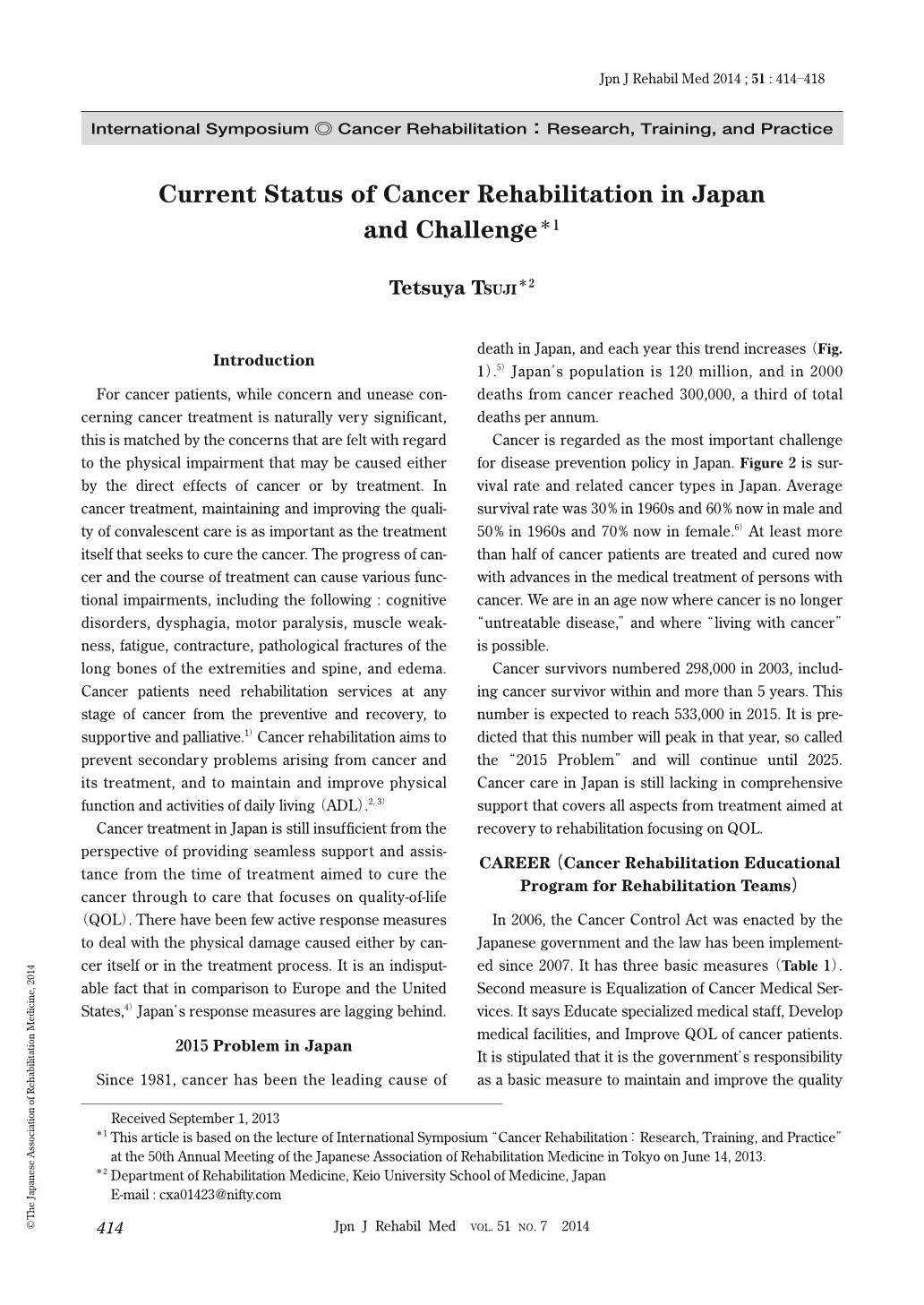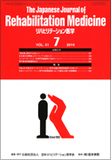Japanese
English
- 販売していません
- Abstract 文献概要
- 1ページ目 Look Inside
- 参考文献 Reference
For cancer patients, while concern and unease concerning cancer treatment is naturally very significant, this is matched by the concerns that are felt with regard to the physical impairment that may be caused either by the direct effects of cancer or by treatment. In cancer treatment, maintaining and improving the quality of convalescent care is as important as the treatment itself that seeks to cure the cancer. The progress of cancer and the course of treatment can cause various functional impairments, including the following : cognitive disorders, dysphagia, motor paralysis, muscle weakness, fatigue, contracture, pathological fractures of the long bones of the extremities and spine, and edema. Cancer patients need rehabilitation services at any stage of cancer from the preventive and recovery, to supportive and palliative.1) Cancer rehabilitation aims to prevent secondary problems arising from cancer and its treatment, and to maintain and improve physical function and activities of daily living (ADL).2, 3)
Cancer treatment in Japan is still insufficient from the perspective of providing seamless support and assistance from the time of treatment aimed to cure the cancer through to care that focuses on quality-of-life (QOL). There have been few active response measures to deal with the physical damage caused either by cancer itself or in the treatment process. It is an indisputable fact that in comparison to Europe and the United States,4) Japan's response measures are lagging behind.
Introduction
For cancer patients, while concern and unease concerning cancer treatment is naturally very significant, this is matched by the concerns that are felt with regard to the physical impairment that may be caused either by the direct effects of cancer or by treatment. In cancer treatment, maintaining and improving the quality of convalescent care is as important as the treatment itself that seeks to cure the cancer. The progress of cancer and the course of treatment can cause various functional impairments, including the following : cognitive disorders, dysphagia, motor paralysis, muscle weakness, fatigue, contracture, pathological fractures of the long bones of the extremities and spine, and edema. Cancer patients need rehabilitation services at any stage of cancer from the preventive and recovery, to supportive and palliative.1) Cancer rehabilitation aims to prevent secondary problems arising from cancer and its treatment, and to maintain and improve physical function and activities of daily living (ADL).2, 3)
Cancer treatment in Japan is still insufficient from the perspective of providing seamless support and assistance from the time of treatment aimed to cure the cancer through to care that focuses on quality-of-life (QOL). There have been few active response measures to deal with the physical damage caused either by cancer itself or in the treatment process. It is an indisputable fact that in comparison to Europe and the United States,4) Japan's response measures are lagging behind.

Copyright © 2014, The Japanese Association of Rehabilitation Medicine. All rights reserved.


